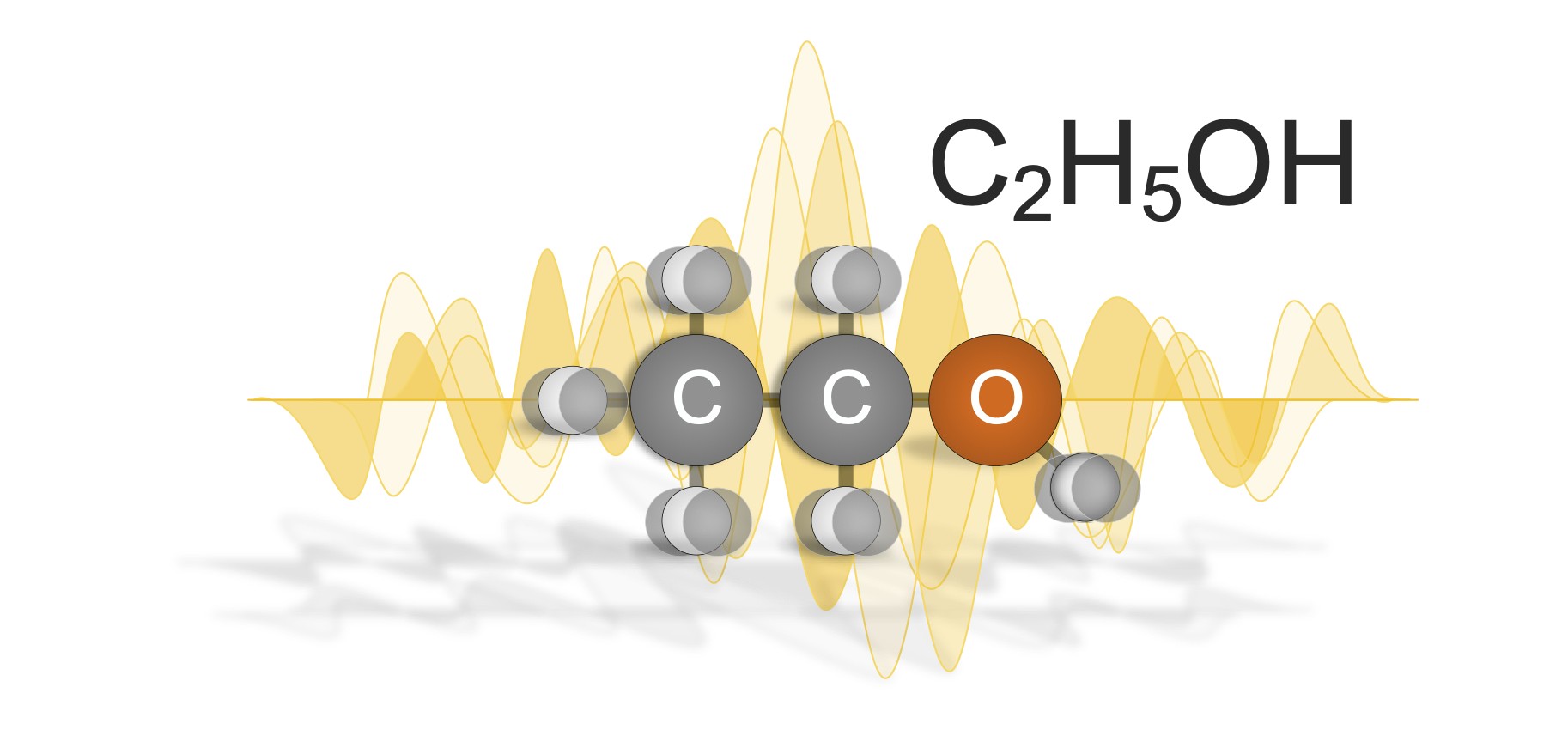Skoltech scientists and their colleagues from the Russian Quantum Center revealed a significant role of nuclear quantum effects in the polarization of alcohol in an external electric field. Their research findings are published in The Journal of Physical Chemistry.
Molecular liquids, such as water or alcohols, are known to be polar. Polarity results from the charge separation mechanism, the microscopic description of which still bears some open questions. In fact, the basic description of the polarization rests on a hundred-years-old concept: the dielectric polarization is connected to the molecular dipole moment due to their hydroxyl functional group (-OH). Orientations of these dipoles would explain the high polarizability of alcohols and the corresponding high dielectric constant, but the discrepancy between the measured dielectric constants and those determined by calculations shows that other mechanisms not considered so far may play an important role, too. As the exact mechanism of the dielectric response of alcohols is still unclear, new ideas should be proposed and tested.
“To address the problem, we experimentally investigated and compared the dielectric responses of a series of monohydric alcohols with different molecular chain lengths and found remarkable similarities which could not be explained by the conventional mechanism of rotating molecular dipoles,” says Dr. Ryzhov, a Skoltech Research Scientist in charge of the experimental part of the study. “Notwithstanding the conventional wisdom, we found that the basic mechanism of the dielectric polarization in alcohols to be of a quantum mechanical nature: the tunneling of excess protons and the consequent formation of intermolecular dipoles with proton-holes. These dipoles are the actual ones that determine the dielectric response from dc up to THz, irrespective of the molecule geometry, hence orientation”, adds Professor Ouerdane from the Skoltech Center for Energy Science and Technology (CEST). “Our research provides a new insight into the properties of liquid dielectrics. The core assumption of our model pertains to a novel understanding of dielectric polarization phenomena in polar liquids by means of nuclear quantum effects,” concludes Vasily Artemov, a Senior Research Scientist at Skoltech and the leading author of the paper.
The authors acknowledge the Global Campus Program, which allowed inviting Ms. Emma Carlsen, BSc in Chemistry from Brigham Young University, USA, who assisted with experiments during her two-month stay at Skoltech. We welcome talented foreign students to join us in Russia to perform cutting-edge research.

